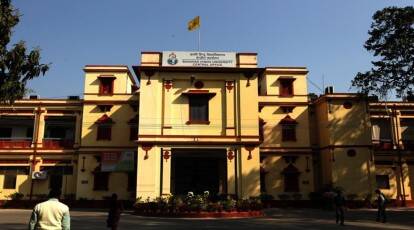Banaras Hindu University: Botanists from the Banaras Hindu University (BHU) and scientists from the Kerala Forest Research Institute (KFRI) and the Agharkar Research Institute (ARI), both in Pune, have found a new genus of fungus from samples taken in Uttarakhand.
The discovery is being regarded as significant since various cancers are being treated with novel antibiotics and other significant mixes (metabolites) from new fungus.
On November 3, this study was published in the esteemed journal Phytotaxa.
The new genus of fungus known as “Neokamalomyces Indicus” was discovered from Uttarakhand from the samples collected by senior assistant professor Raghvendra Singh of BHU and his team of four researchers, who collaborated with Paras Nath Singh of Agharkar Research Institute and Shambhu Kumar of Kerala Forest Research Institute.
The genus of this fungus was named after Prof. Kamal of Deen Dayal Upadhyay Gorakhpur University, Gorakhpur, a renowned scientist who has accomplished great things in the area of fungal variety in India, according to Raghvendra Singh.
He claims that in July 2019 during a survey, samples of banyan leaves infected by the fungus were taken from Uttarakhand. On banyan leaves, the fungus was discovered to produce illness (yellow and brown patches), which later extended to the entire leaf.
A new genus of fungus has been discovered. It took extensive research and laboratory growth of this fungus to learn everything there was to know about this novel lineage.
Modern polyphagic methods, which are regarded as the most relevant and significant criterion in identifying organisms, were used to make this finding.
Also Read: Twitter: Blue Tick Subscription Starts in these Countries, Arrives in India in Less Than a Month
This discovery represents a valuable contribution to the study and preservation of biodiversity.
The results of our research, according to Singh, “may play a very important role for scientists working in the field of biotechnology and scientists working in the biocontrol industries, scientists related to plant diseases, and scientists interested in creating antifungal chemicals.”
“Fungi hold great promise for the development of medicines.” It is time to incorporate fungus into overall conservation objectives, he continued.
Keep watching our YouTube Channel ‘DNP INDIA’. Also, please subscribe and follow us on FACEBOOK, INSTAGRAM, and TWITTER










